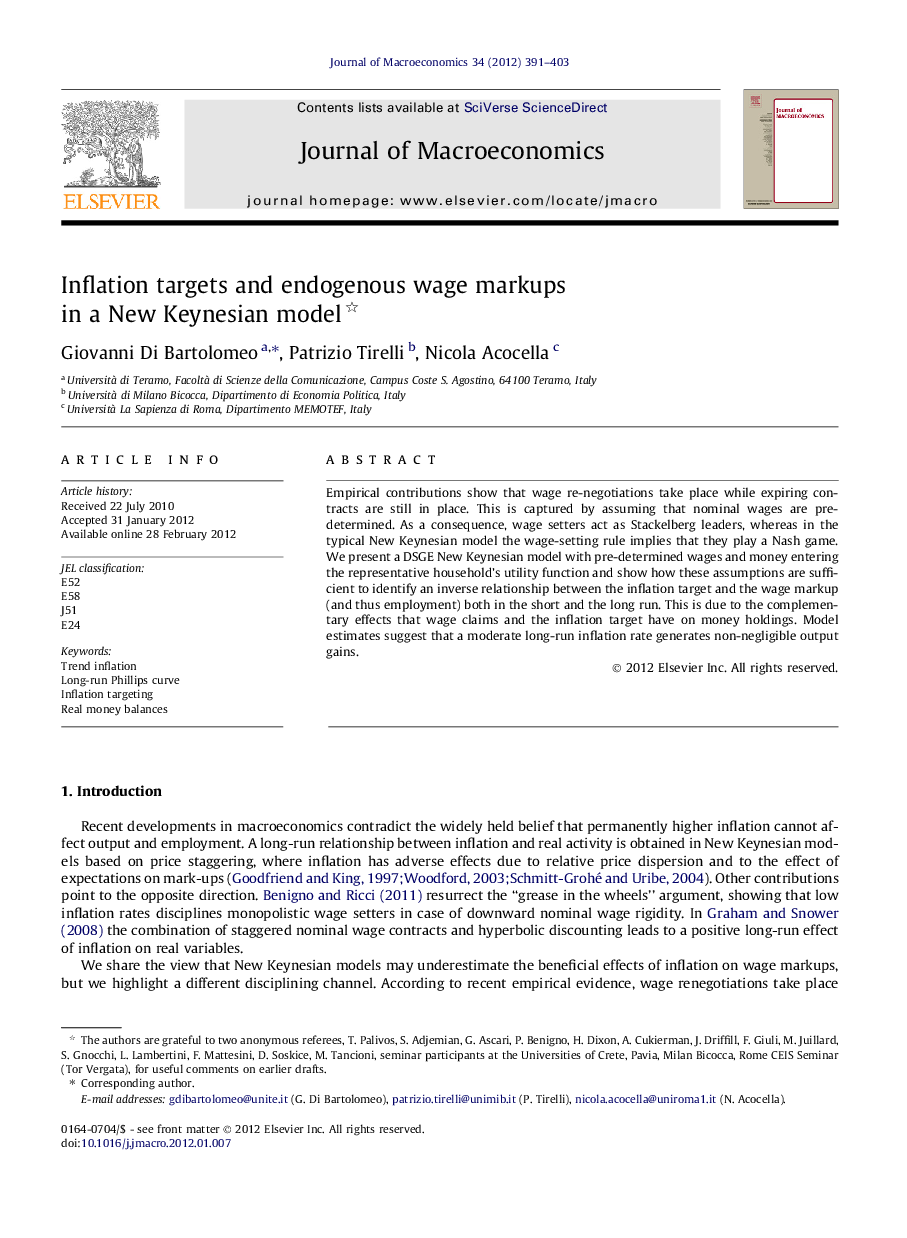| Article ID | Journal | Published Year | Pages | File Type |
|---|---|---|---|---|
| 965524 | Journal of Macroeconomics | 2012 | 13 Pages |
Abstract
Empirical contributions show that wage re-negotiations take place while expiring contracts are still in place. This is captured by assuming that nominal wages are pre-determined. As a consequence, wage setters act as Stackelberg leaders, whereas in the typical New Keynesian model the wage-setting rule implies that they play a Nash game. We present a DSGE New Keynesian model with pre-determined wages and money entering the representative household's utility function and show how these assumptions are sufficient to identify an inverse relationship between the inflation target and the wage markup (and thus employment) both in the short and the long run. This is due to the complementary effects that wage claims and the inflation target have on money holdings. Model estimates suggest that a moderate long-run inflation rate generates non-negligible output gains.
Related Topics
Social Sciences and Humanities
Economics, Econometrics and Finance
Economics and Econometrics
Authors
Giovanni Di Bartolomeo, Patrizio Tirelli, Nicola Acocella,
